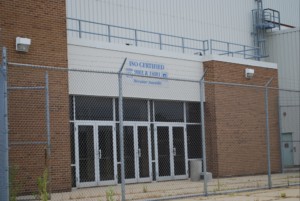 This is the last of my three posts on how to benefit at the cost of your successor. And again, please don’t. This is more of a warning on how to damage the plant for the benefit of the manager. And again, I hope rather than someone using this as a to-do list, someone uses it to see dangers. This last post looks at the worst “trick” of them all, burning the goodwill of your employees for a quick buck. It also looks at the one easiest to see, selling the plant and renting it back.
This is the last of my three posts on how to benefit at the cost of your successor. And again, please don’t. This is more of a warning on how to damage the plant for the benefit of the manager. And again, I hope rather than someone using this as a to-do list, someone uses it to see dangers. This last post looks at the worst “trick” of them all, burning the goodwill of your employees for a quick buck. It also looks at the one easiest to see, selling the plant and renting it back.
Management
How to Look Good at the Cost of Your Successor (Please Don’t!)–Part 2
 This is the second post in this short three-post series on how to look good while driving the plant into the ground. Again, the following is intended more of a warning on how NOT to do it, even though I fear some may use it as a checklist. My hope is that even more see the signs and can stop it, or at least not reward the person in question for this type of skullduggery. I will also talk briefly about how to recognize and counteract this type of behavior for the long-term health and success of your plant.
This is the second post in this short three-post series on how to look good while driving the plant into the ground. Again, the following is intended more of a warning on how NOT to do it, even though I fear some may use it as a checklist. My hope is that even more see the signs and can stop it, or at least not reward the person in question for this type of skullduggery. I will also talk briefly about how to recognize and counteract this type of behavior for the long-term health and success of your plant.
How to Look Good at the Cost of Your Successor (Please Don’t!)–Part 1
 This post series will be an unusual one. I will tell you how to look good in manufacturing at the cost of your successor. Of course, I do NOT want you to do that. Not only will there be no improvement, but instead the plant will be worse in the long run at the cost of a short-term benefit. This is a somewhat sarcastic post on the dirty tricks you can use to look good, while at the same time driving your (future) plant into the ground. The responsible managers of course will be somewhere else before the inevitable happens. Even though the approaches below are bad for the plant, I am sure some managers will use this as a checklist. But I hope that even more people will see it as a list of warnings for bad managers.
This post series will be an unusual one. I will tell you how to look good in manufacturing at the cost of your successor. Of course, I do NOT want you to do that. Not only will there be no improvement, but instead the plant will be worse in the long run at the cost of a short-term benefit. This is a somewhat sarcastic post on the dirty tricks you can use to look good, while at the same time driving your (future) plant into the ground. The responsible managers of course will be somewhere else before the inevitable happens. Even though the approaches below are bad for the plant, I am sure some managers will use this as a checklist. But I hope that even more people will see it as a list of warnings for bad managers.
American Factory – Documentary of a Chinese Automotive Factory in the USA
 A good manufacturing documentary on Netflix is American Factory. This movie follows an American automotive plant that closed some time ago, and was reopened by a Chinese car glass manufacturer. It documents the differences and problems between employees and management in general and the cultural clashes between Chinese management’s and American workers’ expectations in particular. It is in fact very similar to the 1986 movie Gung Ho, except Gung Ho is a fictional comedy, whereas American Factory is as real as it gets. Good to watch! It also won the Oscar for “Best Documentary” in 2020.
A good manufacturing documentary on Netflix is American Factory. This movie follows an American automotive plant that closed some time ago, and was reopened by a Chinese car glass manufacturer. It documents the differences and problems between employees and management in general and the cultural clashes between Chinese management’s and American workers’ expectations in particular. It is in fact very similar to the 1986 movie Gung Ho, except Gung Ho is a fictional comedy, whereas American Factory is as real as it gets. Good to watch! It also won the Oscar for “Best Documentary” in 2020.
Fictional Movie on US-Japan Automotive Culture Clash – Gung Ho

Recently I watched a few feature-length movies about automotive plants America. The first one is Gung Ho, a fictional comedy from 1986 featuring Michael Keaton. The movie shows a Japanese car maker purchasing a closed-down plant in the USA, and lots of cultural clashes that threaten to close down the plant again. While not Academy Award-worthy, it offers insights into the cultural differences between Japanese and US Industry, although often exaggerated on both sides for comical effect.
On Adjusting Supervisor Workload
 In my last post I looked at the span of control. This is very related to the workload of the supervisor. Hence in this post I would like to discuss how to adjust the supervisor workload. Usually, this is to reduce the workload, as most shop-floor supervisors are in my opinion overworked and have no time left for improvement. In some cases, however, you may have a situation where you want to give the rare underworked supervisor more work. Most of the approaches presented will work in both directions. Let’s look at some ideas:
In my last post I looked at the span of control. This is very related to the workload of the supervisor. Hence in this post I would like to discuss how to adjust the supervisor workload. Usually, this is to reduce the workload, as most shop-floor supervisors are in my opinion overworked and have no time left for improvement. In some cases, however, you may have a situation where you want to give the rare underworked supervisor more work. Most of the approaches presented will work in both directions. Let’s look at some ideas:
On the Span of Control
 Pretty much all companies are based on a hierarchical structure. One superior manages multiple subordinates. The question is: How many subordinates should be managed by a superior? This is also called the span of control. This depends on a number of factors. Let’s have a look at efficient group sizing.
Pretty much all companies are based on a hierarchical structure. One superior manages multiple subordinates. The question is: How many subordinates should be managed by a superior? This is also called the span of control. This depends on a number of factors. Let’s have a look at efficient group sizing.

